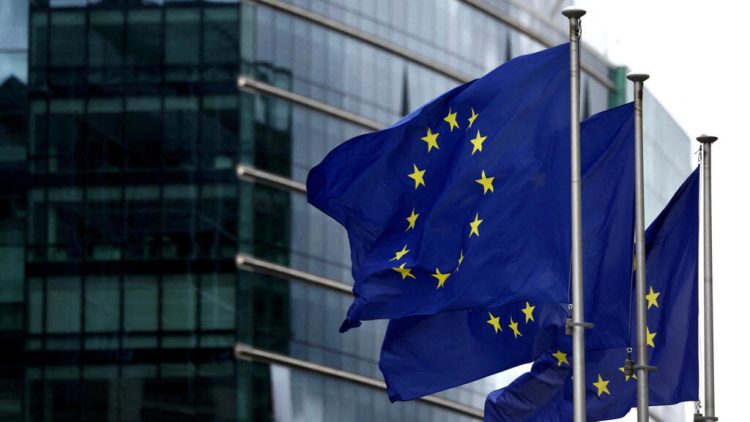In recent years, the European Union (EU) has taken a firm and increasingly sophisticated approach to regulating major American technology corporations. Companies like Google, Apple, Meta (formerly Facebook), Amazon, and Microsoft — collectively often referred to as the “Big Tech” — have faced unprecedented scrutiny under the EU’s evolving legislative framework. The Digital Markets Act (DMA), the Digital Services Act (DSA), and updates to data privacy regulations mark a new era of oversight aiming to curb monopolistic behavior, safeguard user rights, and promote fair competition within the bloc. This regulatory tightening is widely seen as a bid to protect European digital sovereignty and encourage innovation domestically. However, its implications extend far beyond Europe’s borders. The pressing question is whether this regulatory assertiveness will fundamentally alter the global competitive landscape in technology and redefine power dynamics between the U.S. and the rest of the world.
The Rationale Behind the EU’s Regulatory Push
The EU’s move to ramp up regulation stems from a combination of economic, social, and political factors:
- Dominance and Market Power of U.S. Tech Giants: Over the last two decades, American tech companies have cemented their dominance across numerous digital domains including search engines, social media, e-commerce, cloud computing, and mobile ecosystems. Their control over data flows, consumer access, and digital advertising has led to calls for antitrust enforcement to prevent abuse of this dominance.
- Protecting Data Privacy and User Rights: Europe has historically positioned itself as a global leader in data privacy, epitomized by the General Data Protection Regulation (GDPR). The EU’s population tends to prioritize privacy and transparency more than many other regions, fueling a desire to place stricter limits on how data can be collected, stored, and used by big tech.
- Strategic Autonomy and Digital Sovereignty: The EU’s desire to reduce dependency on foreign (especially American and Chinese) technology providers and foster a self-sufficient digital ecosystem has driven policymakers to take proactive regulatory action.
- Public and Political Pressure: There is significant public concern over misinformation, online harms, data breaches, and perceived lack of accountability among tech platforms. EU institutions have responded by seeking to increase corporate responsibility and safeguard democratic processes.
Core Components of EU Tech Regulations and Their Effects
The DMA and DSA represent transformative changes in digital governance. Their combined impact targets different aspects of Big Tech’s influence:
- Digital Markets Act (DMA): The DMA specifically targets so-called “gatekeepers” — platforms that control access to large user bases and digital markets. It restricts practices like self-preferencing (favoring their own services over competitors), bundling products, limiting data portability, and unfairly restricting interoperability. The goal is to dismantle barriers to market entry and foster competition.
- Digital Services Act (DSA): The DSA focuses on platform accountability regarding illegal or harmful content, transparency of algorithms, and user protections. It mandates quicker removal of unlawful material and requires platforms to be more transparent about content moderation policies.
- Data Privacy and Governance: Building on GDPR, new rules are emerging to enhance user control, data portability, and cross-border data transfer safeguards, imposing further compliance requirements on tech firms.
How Might These Regulations Affect Global Competition?
The EU’s assertive regulatory stance is expected to have significant ripple effects on the global tech ecosystem:
Creating Opportunities for European and Other Non-U.S. Players
By constraining the market power of U.S. giants, the EU opens the door for smaller European startups and other global firms to compete on a more level playing field. Reduced gatekeeper control may spur innovation and increase consumer choice, benefiting local digital ecosystems and encouraging investment.
Increased Operational and Compliance Costs for U.S. Firms
U.S. tech companies must now dedicate significant resources toward legal compliance, restructuring business practices, and adapting services for European markets. These increased costs can impact profitability, slow product rollouts, and force strategic reassessments of global business models.
Potential Market Fragmentation
The necessity to comply with divergent regulatory regimes globally could push tech firms to regionalize their services, resulting in a more fragmented digital landscape. This fragmentation might reduce the scale economies that U.S. firms have historically leveraged and complicate global user experiences.
Influence on Other Jurisdictions
The EU’s regulations are often seen as a “gold standard” and may inspire similar laws elsewhere. Countries in Asia, Latin America, and Africa are closely watching the EU’s approach, and many may adopt comparable frameworks, reshaping global norms for digital governance.
Geopolitical and Trade Implications
Heightened EU regulation could exacerbate tensions between the EU and the U.S., particularly if American companies view the rules as protectionist or overly burdensome. This dynamic could lead to diplomatic disputes or retaliatory trade measures affecting technology and data flows.

Broader Implications for Innovation, Consumers, and Society
While the EU’s regulatory efforts aim to foster competition and protect users, the effects on innovation and consumer welfare are nuanced:
- Boosting Innovation Through Competition: By reducing barriers imposed by gatekeepers, the EU’s rules could empower new entrants and startups, potentially accelerating innovation and diversifying market offerings.
- Risks of Regulatory Overreach: Excessive regulation might stifle innovation by burdening companies with compliance costs and legal uncertainties, possibly discouraging investment in new technologies.
- Enhancing Consumer Protections: Improved privacy controls, transparency, and accountability mechanisms are likely to increase user trust and safety online, which can, in turn, encourage greater digital participation.
- Potential Limits on Service Functionality: Stricter content moderation and data restrictions might curtail certain platform features, personalization, or convenience, impacting user experience.
What Does This Mean for the Future of Global Tech Competition?
The EU’s regulatory strategy signifies a critical inflection point in the global digital economy. By challenging U.S. tech dominance, the EU asserts its desire for a multipolar digital world where power is more evenly distributed. This could encourage a more diverse technology landscape, with regional champions emerging in Europe, Asia, and elsewhere.
However, the path forward is uncertain. The balance between regulation and innovation is delicate, and excessive constraints risk hampering growth while insufficient oversight could allow monopolistic practices to continue unchecked. Moreover, regulatory divergence may complicate cross-border operations, increasing costs for multinational firms and slowing the globalization of digital services.
For U.S. tech giants, adapting to these evolving demands requires agility, investments in compliance infrastructure, and possibly rethinking their global strategies. Meanwhile, smaller competitors and startups might seize the opportunity to expand and innovate within more favorable regulatory environments.
Conclusion
The European Union’s regulatory crackdown on American technology giants represents a bold attempt to reshape the digital economy according to principles of fairness, transparency, and sovereignty. Its impact will be felt not only within Europe but across the global technology ecosystem. Whether this push will successfully recalibrate the balance of power depends on how effectively it fosters competition without undermining innovation and how other jurisdictions respond.
In the coming years, the EU’s approach could catalyze a shift towards a more fragmented but potentially more competitive global digital landscape. This evolution will challenge both incumbent tech giants and emerging players to navigate a complex regulatory terrain while striving to deliver value to consumers worldwide. Ultimately, the EU’s regulatory ambitions stand as a major force reshaping the rules of global tech competition in the 21st century.































